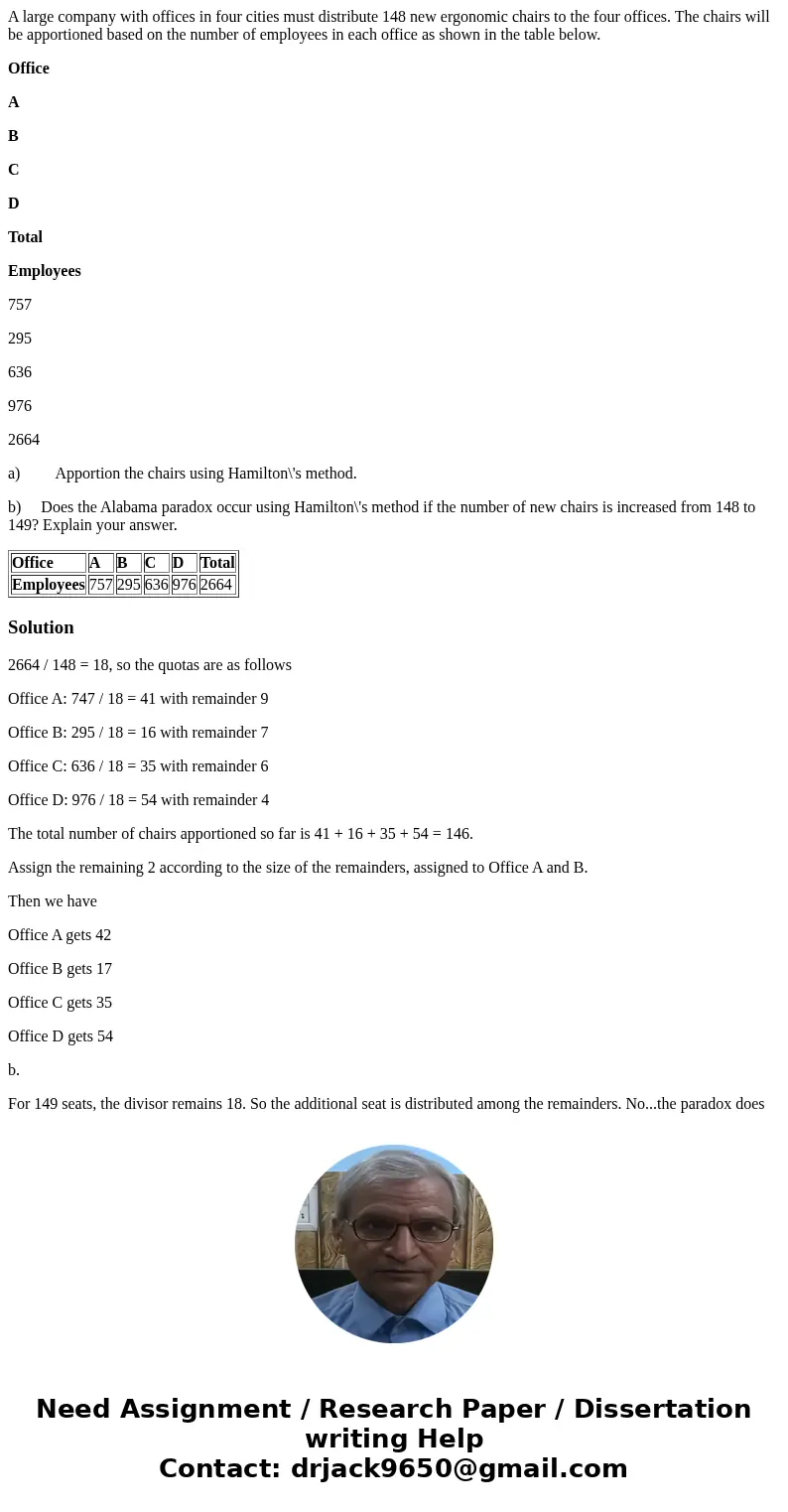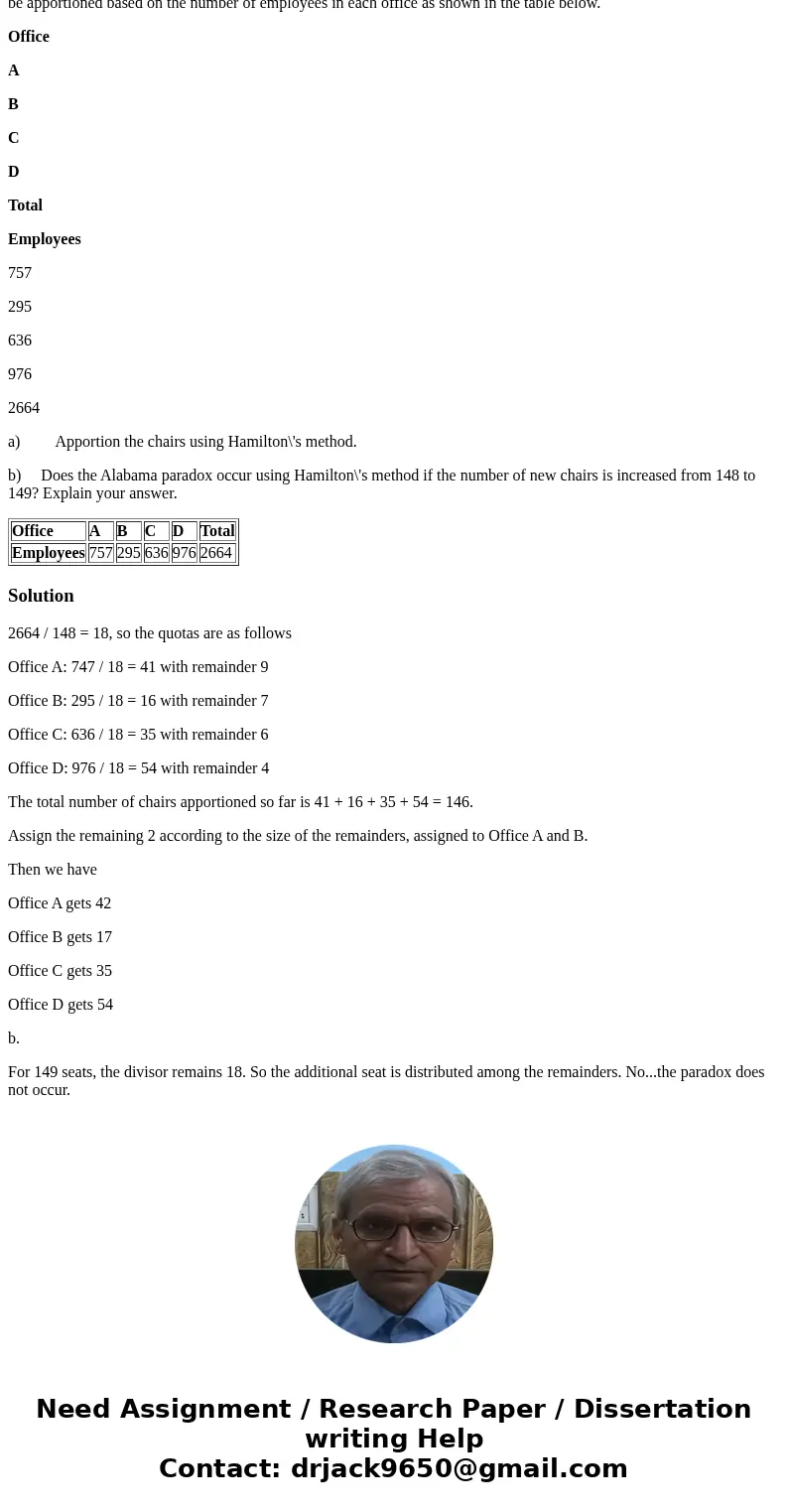A large company with offices in four cities must distribute
A large company with offices in four cities must distribute 148 new ergonomic chairs to the four offices. The chairs will be apportioned based on the number of employees in each office as shown in the table below.
Office
A
B
C
D
Total
Employees
757
295
636
976
2664
a) Apportion the chairs using Hamilton\'s method.
b) Does the Alabama paradox occur using Hamilton\'s method if the number of new chairs is increased from 148 to 149? Explain your answer.
| Office | A | B | C | D | Total |
| Employees | 757 | 295 | 636 | 976 | 2664 |
Solution
2664 / 148 = 18, so the quotas are as follows
Office A: 747 / 18 = 41 with remainder 9
Office B: 295 / 18 = 16 with remainder 7
Office C: 636 / 18 = 35 with remainder 6
Office D: 976 / 18 = 54 with remainder 4
The total number of chairs apportioned so far is 41 + 16 + 35 + 54 = 146.
Assign the remaining 2 according to the size of the remainders, assigned to Office A and B.
Then we have
Office A gets 42
Office B gets 17
Office C gets 35
Office D gets 54
b.
For 149 seats, the divisor remains 18. So the additional seat is distributed among the remainders. No...the paradox does not occur.


 Homework Sourse
Homework Sourse